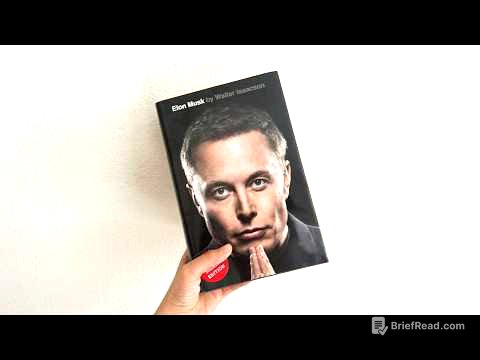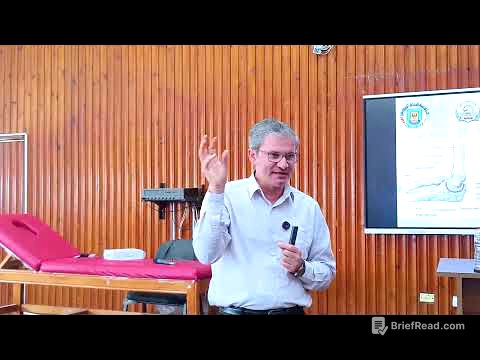TLDR;
This video discusses the benefits of intermittent and extended fasting, particularly focusing on how fasting can combat insulin resistance, promote autophagy, and stimulate the immune system. It covers practical tips for fasting and refeeding, emphasizing the importance of electrolytes and a gradual reintroduction of food.
- Fasting helps combat insulin resistance, the root of many chronic diseases.
- Extended fasting promotes autophagy, cleaning up damaged cells and pathogens.
- Fasting can stimulate stem cell production and boost the immune system.
Introduction: Not Eating for 3 Days? [0:00]
The video starts by challenging the conventional idea that we must constantly nourish our bodies to heal. It posits that insulin resistance is the primary driver behind chronic diseases, including cancer. Insulin resistance is caused by eating too frequently, which leads to elevated insulin levels that block cells from receiving fuel. The common advice to eat frequent small meals to avoid overeating actually worsens insulin resistance and metabolic issues.
Intermittent Fasting Benefits [1:02]
Intermittent fasting can reverse the negative effects of frequent eating. When you eat, insulin levels rise, preventing beneficial processes from occurring. For example, an 18-hour fast with a 6-hour eating window can lead to weight loss in the midsection, improved mental state and mood, and reduced inflammation.
Extended Fasting Benefits [1:44]
Extended fasting, lasting from 24 to 48 hours, amplifies the benefits of intermittent fasting. It depletes glycogen stores in the liver, leading to initial water loss. During this period, the body primarily burns ketones (87% of fuel). Extended fasting also supports the gut microbiome and significantly increases human growth hormone levels, which aids in fat burning and muscle growth. Additionally, the brain benefits from the increased ketone supply.
Autophagy and Fasting [3:12]
Autophagy, the process of cleaning out junk cells and converting them into new cells, is significantly enhanced during extended fasting. This self-cleaning process taps into fat stores and other unnecessary materials in the body, converting them into valuable resources. Autophagy is suppressed when you eat or take supplements; it primarily occurs when you don't eat. Prolonged fasting helps prune the brain and build new brain cells to a greater extent than intermittent fasting. Insulin powerfully shuts down autophagy, fat burning, and the regrowth of brain cells.
72-Hour Fast Benefits [4:22]
Extending the fast to 72 hours initiates the cleanup of intracellular pathogens, including viruses like Epstein-Barr and herpes. There are no drugs or supplements that can eliminate these latent viruses as effectively as prolonged fasting. Additionally, a 3-day fast stimulates the immune system, which protects against cancer and autoimmune diseases. Fasting can provide stem cell therapy benefits for free, mimicking the effects of expensive treatments. The video recommends the book "Metabolic Freedom" by Ben Aadi for further reading.
Immune Benefits of Extended Fasting [4:49]
Extended fasting transforms health in many ways, including stimulating the immune system. This stimulation helps protect the body against diseases like cancer and autoimmune disorders. The video challenges the notion that constant nourishment is necessary for health, emphasizing the transformative benefits of prolonged fasting.
Fasting Tips [5:36]
When water fasting, whether intermittent or prolonged, consuming calories will break the fast. You can drink coffee and tea because they have no calories, but bone broth is not suitable due to its caloric content. It's crucial to consume enough sea salt to avoid feeling tired; a teaspoon per day, mixed with water, is recommended. Also, ensure you have sufficient electrolytes like potassium and magnesium, as deficiencies can be exaggerated during a prolonged fast.
How to Break a Fast [6:28]
Refeeding after a three-day fast requires caution. Avoid the mistake of immediately loading up on food, which can cause sickness. Start with bone broth, followed by small portions of steamed vegetables and eggs, allowing time for digestion between each. Return to normal meals gradually the following day. The worst thing you can do is consume a lot of carbohydrates or introduce a large amount of food immediately after a prolonged fast.









